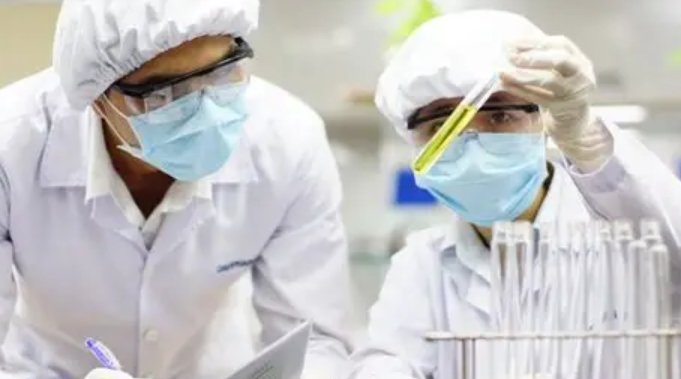
image credit- shutterstock
Vietnam’s pharmaceutical market is expanding rapidly. According to Fitch Solutions, it was valued at $6 billion in 2023 and is projected to reach $8.7 billion by 2028, before climbing to $11.6 billion by 2033. Despite this growth, the industry remains heavily reliant on imports. Data from the Drug Administration of Vietnam (DAV) show that innovative medicines account for only 3 per cent of total drug volume but represent 22 per cent of market value, most of which are imported.
To strengthen domestic capacity, in 2023, the Vietnamese government has launched the National Strategy for the Development of the Pharmaceutical Industry to 2030, with a long-term vision to 2045. The plan targets local manufacturers to meet 80 per cent of national drug demand and account for 70 per cent of market value by 2030. It also seeks vaccine self-sufficiency for the national immunisation programme and 30 per cent coverage of private vaccination needs. By the end of the decade, Vietnam aims to produce 20 per cent of its own pharmaceutical raw materials and complete technology transfer for at least 100 drugs, vaccines, and biologics currently imported.
Supporting this vision, Hanoi launched the Biotech Hi-Tech Park in August 2025. The park aims to attract global biotech firms, promote domestic R&D, and facilitate technology transfer to Vietnamese enterprises. It is set to become a centre for biomedical research, agricultural biotechnology, and pharmaceutical manufacturing, reinforcing Vietnam’s broader ambition to lead in life sciences within Southeast Asia.
In a related development, the NVC Vaccine and Biological Products Factory in Long An Province began construction in May 2025. The 26,000-square-metre facility, backed by an investment of VND2 trillion ($77.17 million), will have the capacity to produce up to 100 million vaccine doses per year. Scheduled for completion in 2027, the facility will receive technology transfer from Sanofi, focusing on the localisation of new and essential vaccines—marking a key milestone in Vietnam’s drive for vaccine self-sufficiency.
Trends in biotech sector
Vietnam’s biotech industry is entering a period of steady transformation, driven by new drug regulatory reforms and the gradual emergence of domestic innovators. At the same time, biopharma companies from across Asia are expanding into Vietnam, attracted by rising healthcare demand and an improving R&D ecosystem.
New Drug Regulations
Vietnam’s amended Law on Pharmacy, which took effect on July 1, 2025, marks a major step toward modernising the country’s pharmaceutical sector. The reform introduces broad measures to streamline regulatory processes, enhance market access, and increase transparency, with the goal of attracting investment, boosting domestic manufacturing, and improving distribution efficiency.
Key updates include the legalisation of e-commerce sales for non-prescription medicines, allowing online access while maintaining strict control over restricted substances. The law also expands market access for foreign-invested enterprises (FIEs), granting them rights to repurchase and distribute locally produced drugs, import raw materials, and transport products for clinical trials.
To speed up market entry, reference-based approvals are shortened to nine months, renewal procedures require fewer documents, and expired marketing authorisations remain valid during renewal review. Clinical trial drug imports are also simplified—non-marketed products (excluding controlled substances) no longer require separate import licences, subject to Ministry of Health (MoH) oversight.
The amendments further strengthen price transparency, requiring manufacturers and importers to declare wholesale prices before market launch.
Rising Biotech Ties and Investment
Vietnam is fast becoming a preferred destination for Asian pharmaceutical and biotechnology companies looking to expand within Southeast Asia’s rapidly developing healthcare markets. In September 2025, a Vietnam–Cuba network was launched to advance biotechnology research and healthcare solutions, underscoring the country’s growing role in regional collaboration. In February 2025, New Zealand’s Orion Health expanded its footprint through strategic partnerships, while Australia’s Core8 Group announced plans to establish Vietnam’s first AI-powered biotech innovation hub in 2024. From South Korea, Celltrion set up its Vietnamese subsidiary in, and Hyosung TNC secured approval for its US$1 billion Hyosung BDO project in Ba Ria–Vung Tau Province, which will house one of Asia’s largest bio-spandex manufacturing facilities. India’s CareMother by Doto Health also entered the market, adding to the country’s growing biotech ecosystem.
Singapore is another key partner in this expansion. The Saw Swee Hock School of Public Health at the National University of Singapore signed an MoU with Vietnam’s Health Strategy and Policy Institute, while the SingHealth Duke-NUS Global Health Institute and Hanoi Medical University launched the Regional Collaborating Centre (RCC) in Hanoi to promote joint medical research and innovation. In higher education, Nanyang Technological University (NTU) and VinUniversity formed a strategic partnership aimed at supporting VinUni’s ambition to become a globally recognised entrepreneurial university. In the private sector, Docquity teamed up with the Vietnam Association of Preventive Medicine (VAPM) to strengthen medical training, while Canada’s Gene Bio Medical (GBM) signed an MoU with Bình Định Pharmaceutical–Medical Equipment JSC (BIDIPHAR) to develop a large-scale molecular diagnostics production facility in Bình Định Province.
Fuelling innovation
A few startups and companies are fuelling innovation in Vietnam’s growing biotechnology sector, advancing genomics, biopharmaceuticals, and probiotic research to meet regional and global healthcare needs. With a growing base of local innovators and international collaborators, the country is strengthening its role in Southeast Asia’s evolving biotech ecosystem.
Ayesha Siddiqui




